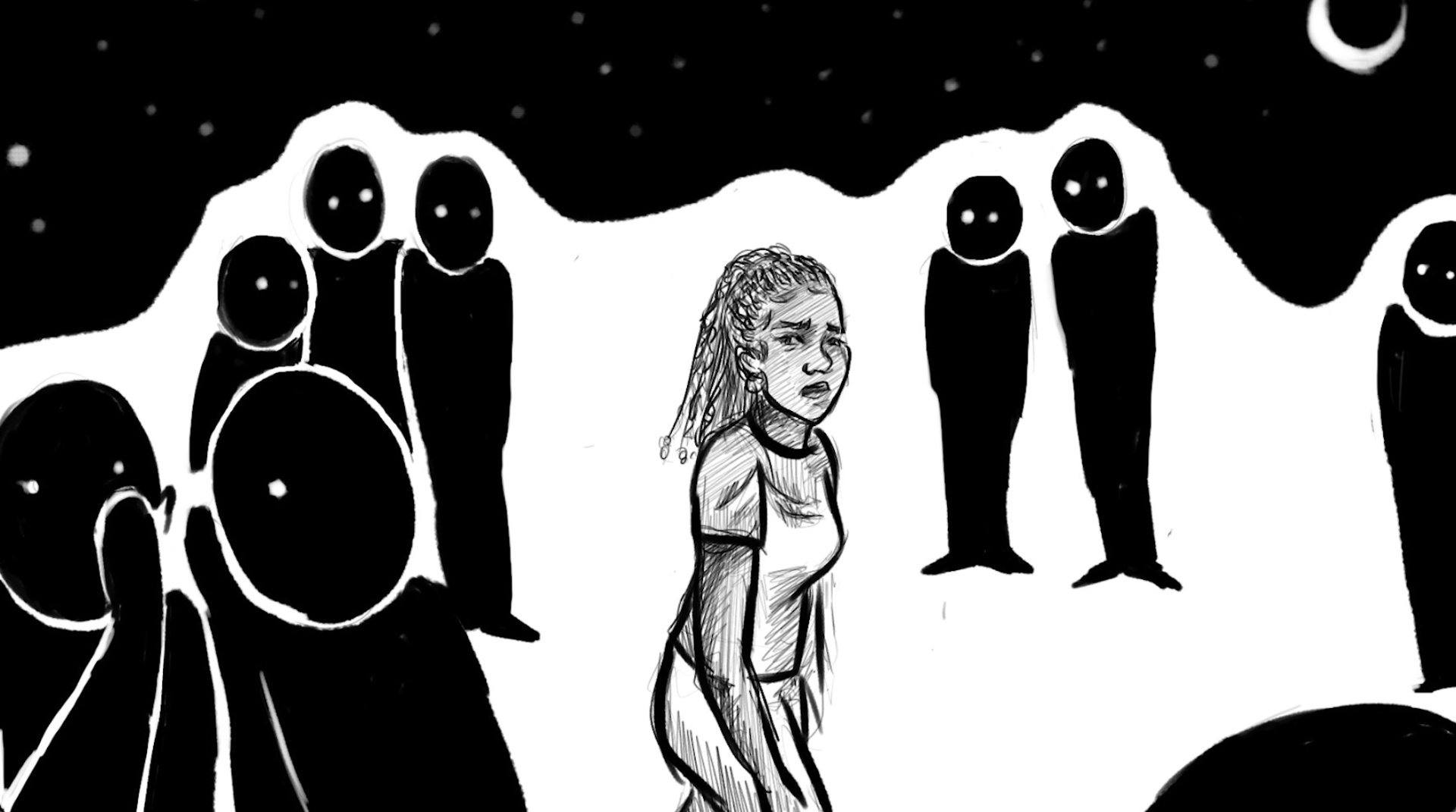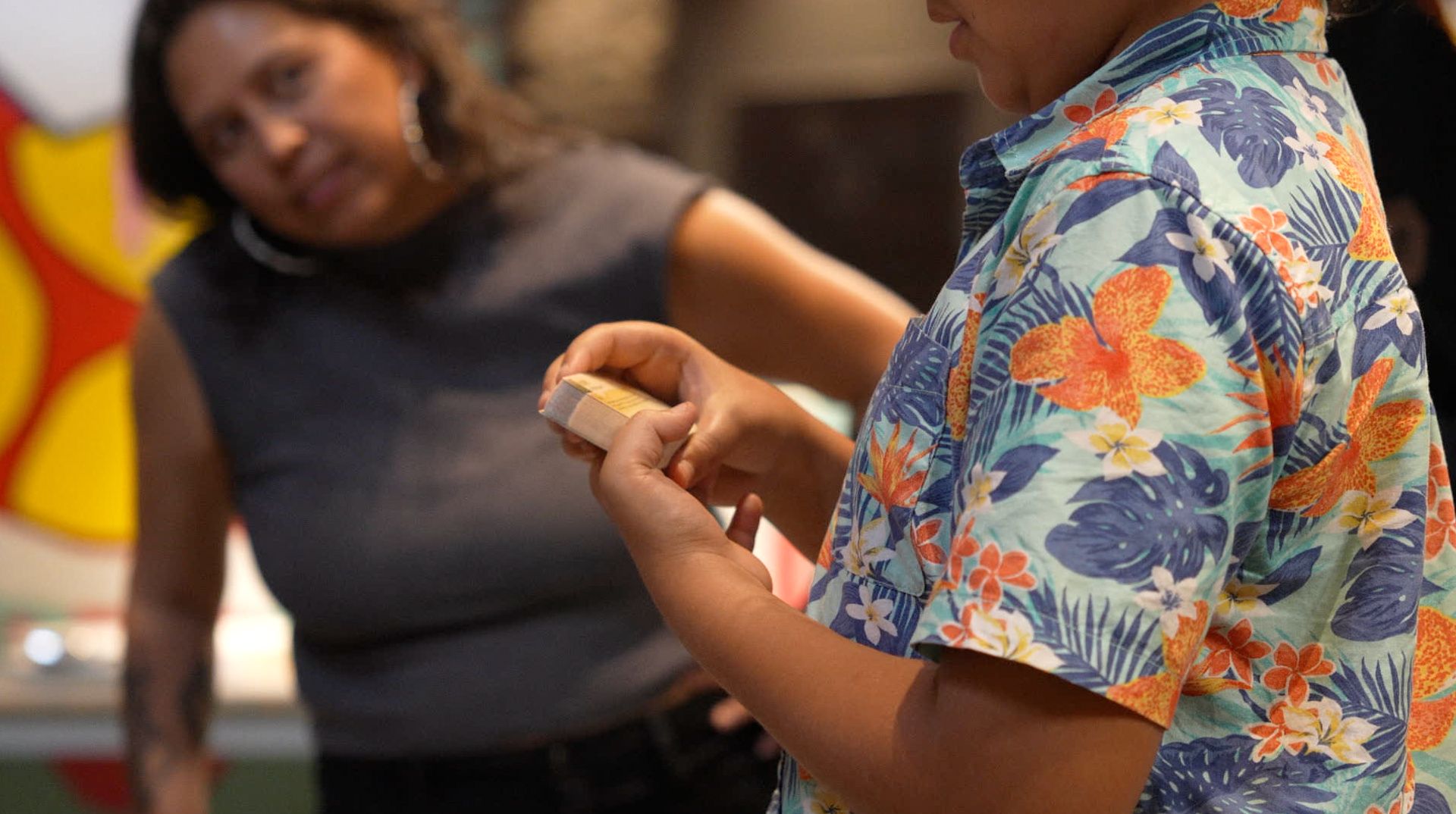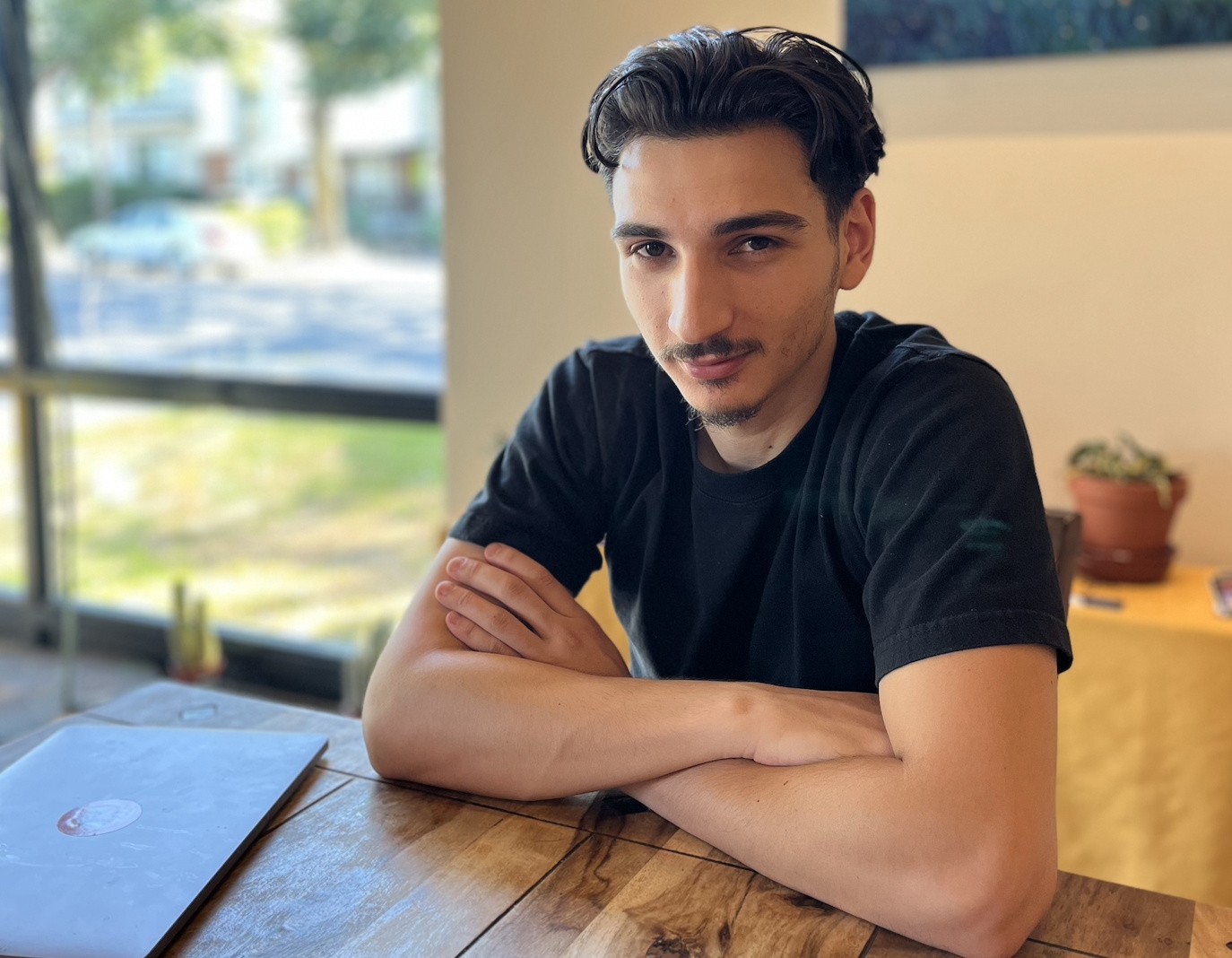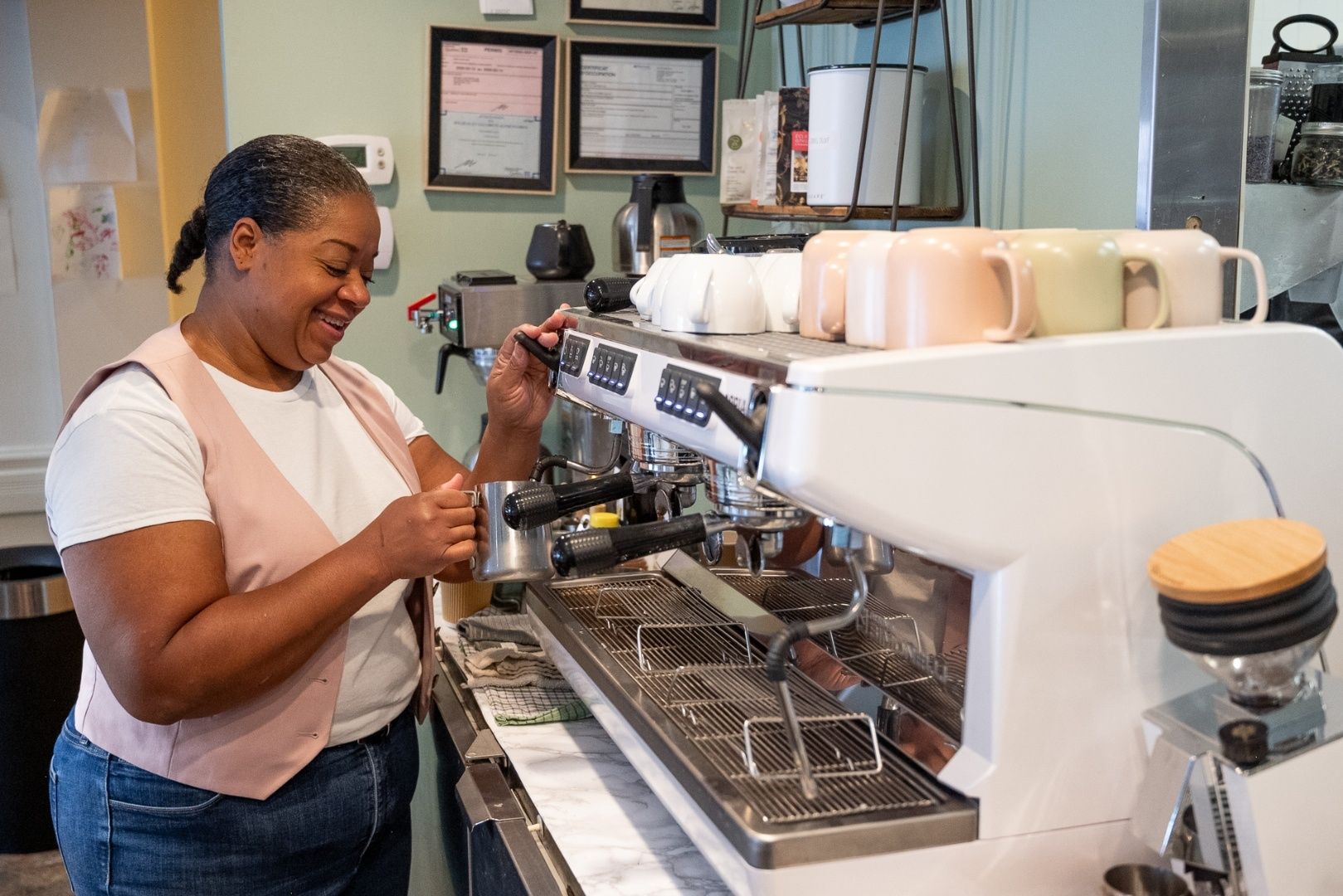For some mothers, Mother's Day can unfortunately amplify feelings of loneliness. Recognizing this potential isolation during motherhood, the organization La Maison de Débora specifically reaches out to young racialized mothers. Founded by Jessey Charles, a nurse and community worker in Rivière-des-Prairies, the organization offers a vital refuge: a space where speech is free, confidence is reborn, and the journey of getting back on one's feet begins. Its core objective? “Breaking the cycle of generational trauma and allowing these women to move from survival to life.”
Rivière-des-Prairies, A busy Thursday morning unfolds. In Jessey Charles' small office, donation bags have piled up, overflowing into the hall. Children's coats, boots, and carefully sorted clothes await their next destination. “We are preparing a bazaar for families in Montreal North, especially newcomers. We collect, we sort, we distribute,” she explains, her focus unwavering behind her constantly vibrating telephone. Parents, teens, young mothers—they all know they can count on her.
At 41, Jessey exudes energy. Her thick glasses, hoop earrings, and pulled-back ponytail give her a decidedly youthful style. Though more than just a counselor, she is a nurse by training, having spent several years in CLSCs across Montreal before answering a deeper calling: community intervention. “Sometimes I tell myself I chose the wrong profession. I should have been a social worker,” she muses.
Recovering your identity in the midst of several intersectionalities
In 2014, Jessey founded Deborah's House, an organization that supports single parents and racialized mothers aged 16 to 41. The name she chose is not trivial: “Débora, in the Bible, is a judge, a warrior, a leader. A figure of strength. That's what I want for these women: that they get up and become pillars.”
Whether they are pregnant or new mothers, these women have the opportunity to be monitored for one year. Currently, La Maison de Débora helps around twenty of them. Some have close follow-ups, others are encountered more occasionally, explains Jessey. “For a long time, we were not able to do structured follow-ups because of various pitfalls,” she explains. In particular, she mentions a lack of funds. The organization recently obtained funding that finally allows it to lay a solid foundation and officially structure itself.
Thanks to La Maison de Débora, Jessey accompanies these women on a daily basis. “As soon as a need arises, she continues, we listen to them, we respond to all their immediate needs and, beyond that, we also offer unifying activities; this allows them to thrive.”
Cooking workshops where we talk as much as we eat, conferences, family outings, but also counseling sessions are offered. “Some have been abused, many are experiencing profound traumas. Being young, motherly and racialized is an intersectionality that further isolates them. They must be given the opportunity to rediscover their identity,” she says.
Jessey is also fighting this fight as an echo of her own life. “My mother got pregnant at a young age. She had no support and I saw the impact on her personal life. She suffered, and so did I.” The counsellor spoke gently but frankly of the wounds left by a loving mother who became vulnerable as a result of a depression. “She put me down without wanting to. She loved me, but the illness makes you say things you would never say otherwise... So it strengthened me even more in this desire to serve these moms,” she says.
So, for Jessey, helping these young mothers also means allowing their children to grow better. “They must be able to heal from their own traumas in order not to transmit them,” she concludes.
“It makes a big difference when someone believes in you! ”
The Tuesday following our first meeting, it is 9 am when we find Jessey in an apartment bathed in light in Ahuntsic. Facing her, concentrated, Jeanne Rosebertha St Fort, 28 years old and mother of a 2-year-old girl, gently handles brushes and concealer. This evening, Jessey will be hosting an episode of the podcast Le Tournant, and it is this mom, whom she has been supporting for several months, who is in charge of her beauty treatment.
“It is thanks to La Maison de Débora that I was able to take this path seriously”, confides Jeanne, obviously intimidated, but in a confident tone. Thanks to Jessey, she landed her very first paid contract as a makeup artist. A contract that seemed small, but it allowed her to rebuild the self-confidence she thought lost.
“Débora's house has been a pillar for me as a single parent,” she continues. I went through things that I trivialized for a long time. Traumas that I have normalized, as if they were normal. I have always known loneliness, but it was really by becoming a mother that I realized what I went through.”
She paused and put her brush down. “In my family, I have always been the black sheep. The rebel. But they don't know what I've been through. They don't know what my dad said, what he did. He was violent with my mom, violent with me. There are things you should never hear from a parent...”
The silence lasted a few seconds, then she picked up her brush again. “I can't wait to tell my story. Even if it's annoying. Because you shouldn't have to keep your emotions quiet to avoid hurting others.”
It's because she was talking that the young woman began to heal, she admits. She remembers that first moment with La Maison de Débora: a simple outing. “There were several moms, my daughter and me. That day, I realized that I was not alone.”
Since then, things have changed. Slowly, but surely. “That's when I offered my makeup services to Jessey. And at each encounter, she talked to me, she listened to me, she encouraged me. Even when I was in doubt, she said, “Go on, I believe in you.” And honestly... it makes all the difference when someone believes in you! ”
The young mother will never forget that helping hand. She won't forget the hardest times either: “When I didn't even have enough to buy diapers, La Maison de Débora was there. Jessey is really a support for me...”
“There are a lot of taboos in the black community”
Jeanne looks up, as if looking for her words in a corner of the ceiling. Then, she goes on slowly: “My mother has been through a lot. Too much, even, and she learned to hide her emotions. And I did the same.”
Her hands move slightly, to highlight the intensity of what she is saying. “Everything has accumulated over the years. And then, when my daughter was born, it exploded. I had postpartum depression. As if everything I had buried was coming up to my face all of a sudden.”
Jessey shakes her head and responds. “We know that in the black community, talking about certain things is complicated. Incest, as well as physical or psychological abuse are perceived as things that do not affect the human being. But it does. But we are afraid of the eyes of others, afraid of tarnishing the name of the family, afraid of being rejected. There is so much left unsaid, so many secrets kept to protect the honor. But at what price? ”
She continues, “There are a lot of biases in our culture. When you are not doing well mentally or emotionally, you are perceived as weak. As if vulnerability was a shame.”
It is this mentality that Jessey wants to deconstruct by intervening with these mothers. She insists, while keeping her eyes closed to let the young woman put makeup on her eyelids. “It's dangerous to suppress your emotions. That silence makes us sick. This lack of vulnerability causes us to store our emotions; it comes out in various physical and mental illnesses,” she concludes.
“It is time to break these silences. It's time we stopped surviving in silence,” she declares.
The makeup is almost done and Jessey is ready for the day ahead. Before leaving, she wanted to address the young girls by looking directly into the camera: “Get to know yourself. When you know who you are, you make choices that protect you, you let yourself be less influenced by your environment. It is by being firm in your identity that you move in the right direction.” She smiles, then concludes: “You are beautiful just the way you are. Don't conform to society's standards. Love yourself the way you were created. You can enhance what you have, yes, but remember: the first person who should love you is you.”
Learn more:




.jpg)



.jpg)
.jpg)
